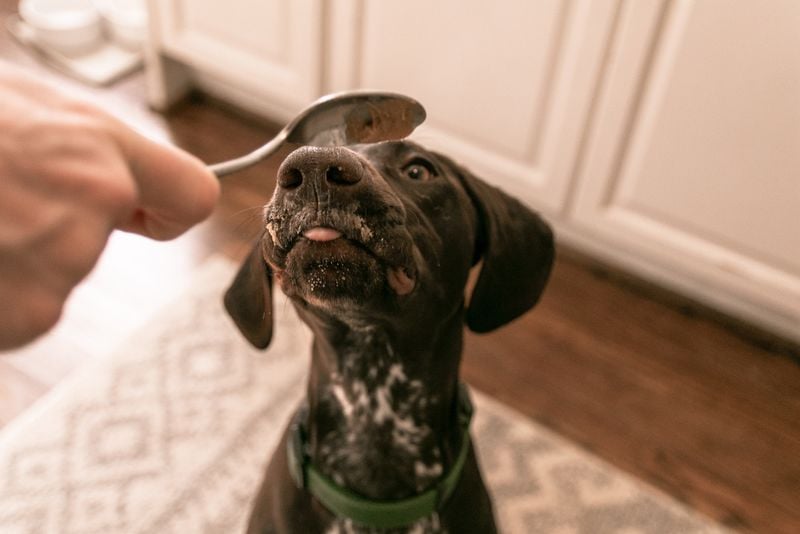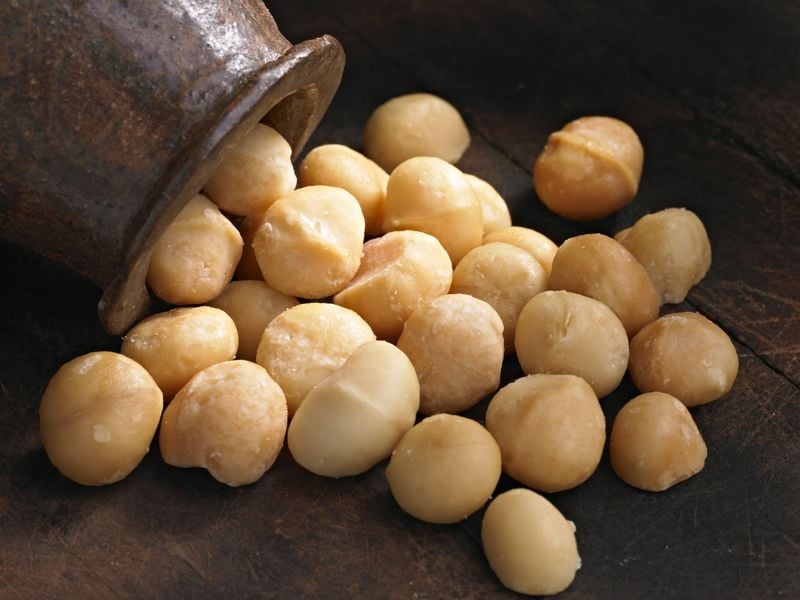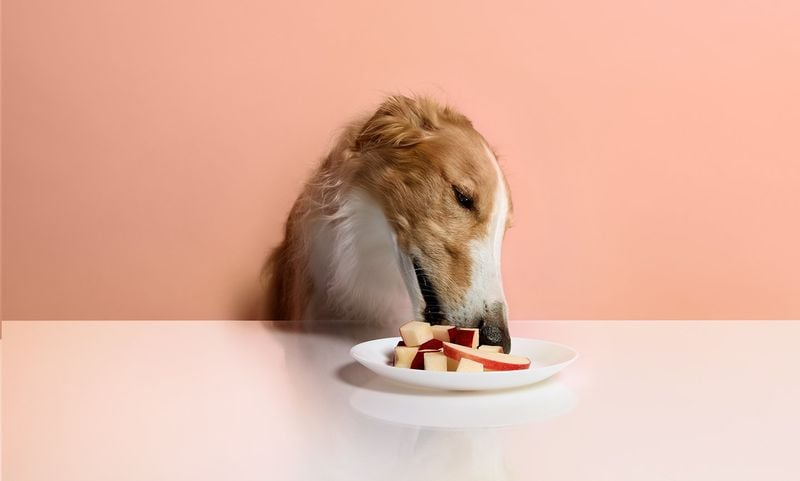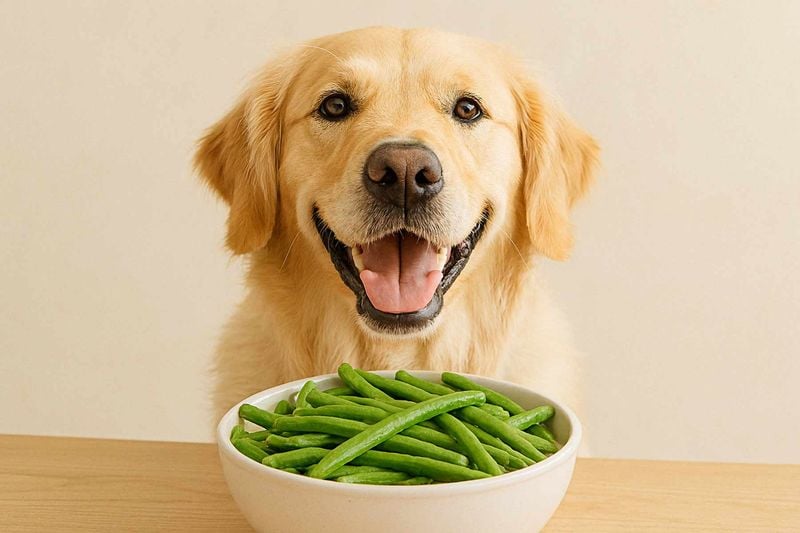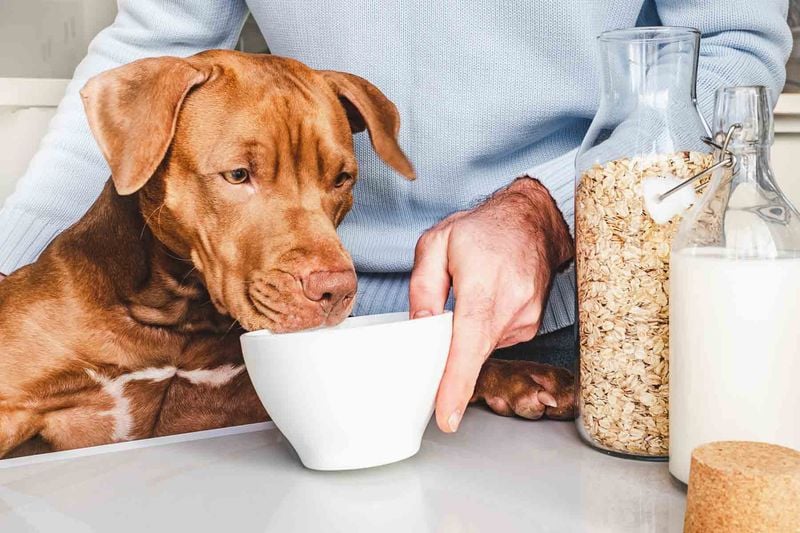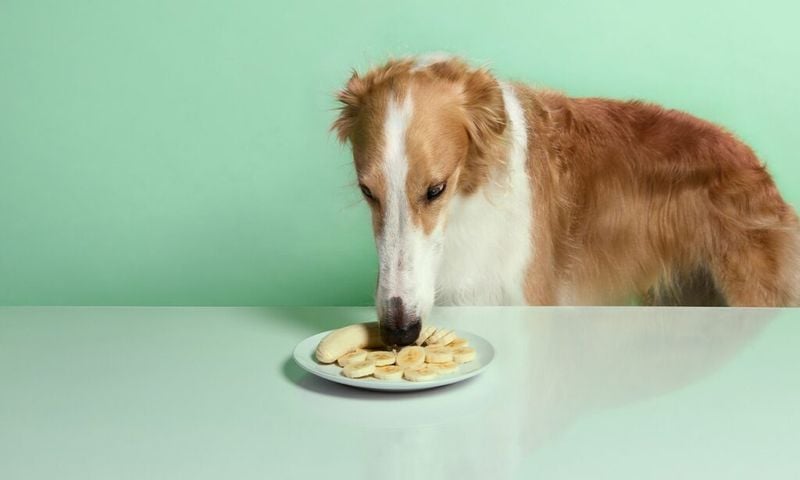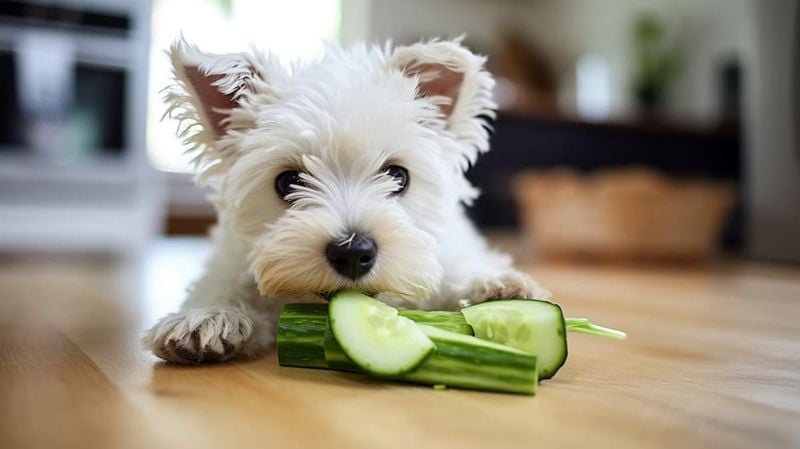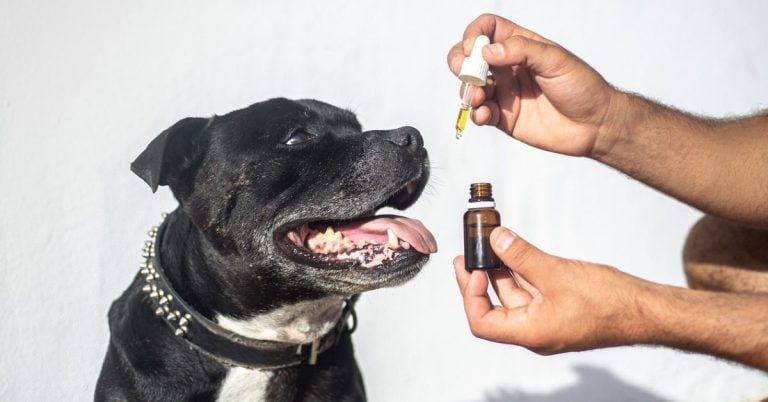12 Foods To Stop Feeding Your Dog & 12 To Give Them More Often
Let’s face it—those puppy-dog eyes are nearly impossible to resist when you’re enjoying a snack.
Whether it’s a bite of your burger or a little nibble of cheese, most of us are guilty of slipping our dogs a “harmless” treat here and there. But what if that innocent gesture is doing more harm than good?
Many foods we eat every day can wreak havoc on a dog’s digestive system—or worse.
From the obvious culprits like chocolate to the not-so-obvious ones like grapes or garlic, there’s a surprising number of pantry staples that should never end up in your pup’s bowl.
Knowing what to avoid is the first step in keeping your four-legged friend healthy and happy. But it’s not all about restrictions and “no’s.” Just as important as what not to feed your dog is understanding what foods can actually benefit them.
Plenty of nutritious, dog-safe ingredients can support everything from their coat shine to their gut health—and yes, some even make for tail-wagging treats.
So instead of reaching for the usual table scraps, why not learn which foods will fuel their zoomies instead of slowing them down?
The truth is, dogs thrive when we feed them with intention, not just affection. That doesn’t mean you can’t treat them—it just means knowing which treats won’t come with side effects.
In this article, we’ll explore 12 common foods you should stop feeding your dog immediately, along with 12 nutritious options you can start offering more often.
Whether you’re a new pet parent or a seasoned dog lover, you might be surprised by what makes the list.
1. Chocolate
Chocolate might be a delicious treat for humans, but it’s a ticking time bomb for dogs. This sweet delight contains theobromine, a compound that dogs metabolize very slowly.
In any form, from milk to dark, even a small bite can trigger symptoms like vomiting, diarrhea, and in severe cases, seizures or heart failure.
It’s the theobromine concentration in chocolate that’s deadly for our furry friends. The darker the chocolate, the more potent the effect. So, next time you’re enjoying a chocolate bar, make sure your pup doesn’t get a nibble.
If your dog sneaks some chocolate, consider it an emergency. Prompt veterinary attention is critical to prevent serious health issues or even death.
2. Grapes and Raisins
Grapes and raisins may seem like harmless snacks, but for dogs, they’re a one-way ticket to the vet.
Even a small quantity can lead to sudden kidney failure. The exact substance within grapes that causes this issue is still unknown, which makes them all the more unpredictable.
Some dogs might not show any immediate symptoms, while others quickly suffer from vomiting, lethargy, and dehydration. It’s a puzzling problem without a definite solution.
Given the potential for serious harm, it’s best to keep grapes and raisins out of paw’s reach. If you suspect your dog has ingested some, a trip to the veterinarian could be life-saving.
3. Onions and Garlic
The potent aroma of onions and garlic might add flavor to our dishes, but they spell trouble for dogs. In any form – raw, cooked, or powdered – these kitchen staples can damage a dog’s red blood cells, leading to anemia.
Symptoms might not show immediately but could include lethargy, weakness, and breathlessness over time. This sneaky danger can lurk in many foods.
Whether it’s a piece of onion from a burger or garlic seasoning in table scraps, keep these away from your pup’s diet. If your dog has consumed any, monitoring and veterinary advice are essential to catch potential health issues early.
4. Xylitol (Found in Sugar-Free Gum and Baked Goods)
Xylitol might sound like a scientific enigma, but it’s just a sugar substitute found in many sugar-free products. For dogs, it’s a sweet poison that wreaks havoc on their insulin levels.
Imagine your dog’s confusion and discomfort as hypoglycemia sets in, leading to vomiting, loss of coordination, and even seizures. Liver failure can occur within a short span.
It’s not just gum; xylitol is lurking in many baked goods and sugar-free snacks. Always check labels if you’re sharing your treats with your pup, and if ingested, immediate veterinary attention is crucial.
5. Avocado
Avocado toast might be a breakfast favorite, but it’s not for your dog. This nutrient-rich fruit contains persin, which can be toxic to dogs.
While a small amount might only cause an upset stomach, larger quantities can lead to more severe symptoms like vomiting or diarrhea. The pit, in particular, poses a choking hazard.
It’s best to enjoy this creamy fruit without involving your furry friend. If your dog does consume avocado, monitor for symptoms and seek vet advice if necessary.
6. Alcohol
Alcohol and dogs are a dangerous mix, even in tiny amounts. Your pup’s tolerance isn’t like yours; what seems trivial to you could mean intoxication or worse for them.
Alcohol can cause vomiting, confusion, and in severe cases, lead to organ failure or a coma. Whether it’s a sip of beer or a drop of wine, dogs should steer clear.
If your dog has gotten into your drink, quick action is crucial. Seek veterinary care immediately to prevent any lethal consequences.
7. Macadamia Nuts
Macadamia nuts are a delicious snack for humans but a perilous treat for dogs. These nuts can cause a range of symptoms, from lethargy and tremors to the more distressing hyperthermia.
It’s unclear why these nuts are so toxic, but their effects can be severe and last up to 48 hours. Not only are they a choking hazard, but they can also cause joint pain and swelling.
If your dog has eaten macadamia nuts, contact a vet immediately. Avoid these nuts to ensure your pet’s safety and well-being.
8. Caffeinated Beverages (Coffee, Tea, Energy Drinks)
Coffee might kickstart your morning, but for dogs, it’s a jittery affair. Caffeine is not just a wake-up call; it’s a stimulant that can be fatal to dogs.
You’ll notice restlessness, rapid breathing, and heart palpitations as the caffeine takes hold. In severe cases, it can lead to seizures.
Keep coffee, tea, and energy drinks away from your pets. If your dog accidentally consumes caffeine, it’s crucial to contact your vet to manage potential symptoms.
9. Fat Trimmings and Cooked Bones
Leftovers might seem like a treat, but fat trimmings and cooked bones are not the gifts they appear to be. For dogs, they can lead to pancreatitis, a painful inflammation of the pancreas.
Cooked bones, though tempting, can splinter and cause blockages or tears in the digestive tract. It’s not worth the risk for a moment of indulgence.
Avoid sharing these with your pup, and if ingested, observe for symptoms or consult with a vet to ensure their safety.
10. Raw Dough (Containing Yeast)
The aroma of baking might draw you in, but raw dough is a danger for dogs. Yeast in the dough can cause it to expand in their stomach, leading to painful bloating.
More concerning is the potential for alcohol poisoning as the yeast ferments inside the stomach. The discomfort and health risks make this an ingredient to keep far from your dog’s reach.
Should your dog sneak a taste, swift veterinary attention is necessary to manage the risks and ensure their comfort and health.
11. Salty Snacks (Chips, Pretzels)
Snacking on salty treats like chips and pretzels might be a human pastime, but too much salt spells trouble for dogs. Sodium ion poisoning can result in excessive thirst, urination, or more severe symptoms like tremors and seizures.
Dogs don’t need the extra salt, and it’s easy for them to overindulge without realizing the harm. Keeping these snacks out of reach is the best way to ensure they stay healthy.
If your pup has consumed a large amount, quick action and veterinary consultation can prevent serious health issues.
12. Dairy Products (in excess)
Dairy delights like cheese and ice cream can be hard to resist, but many dogs are lactose intolerant. Their digestive systems may not handle lactose well, leading to gas, bloating, or diarrhea.
In moderation, some dogs might tolerate dairy, but it’s a delicate balance. Too much can quickly upset their stomachs, causing discomfort.
Consider lactose-free alternatives or consult with your vet to see what suits your pet best. If dairy causes issues, a dietary adjustment can help manage symptoms and maintain comfort.
13. Carrots
Crunchy, sweet, and packed with benefits, carrots are the unsung heroes of the dog world. These low-calorie treats not only delight their taste buds but also work wonders on their teeth.
Rich in beta-carotene, carrots support eye health and provide a satisfying crunch that satisfies their natural urge to chew. Plus, they’re perfect for dogs watching their waistline.
Next time you’re chopping vegetables, toss a carrot to your furry friend. Their happy chomping is a testament to the goodness packed in these orange sticks.
14. Blueberries
Blueberries are tiny powerhouses of nutrition that provide a burst of flavor with every bite. For dogs, these berries are a treat that supports overall well-being.
Loaded with antioxidants, they help combat free radicals and support brain health. A handful of these little gems can also boost your dog’s immune system, keeping them vibrant and active.
Whether fresh or frozen, blueberries are a safe and delicious snack. Share some with your pup and watch them enjoy the fruity delight.
15. Pumpkin (Plain, Cooked or Canned)
Pumpkin isn’t just for pies; it’s a canine favorite that aids digestion. This fiber-rich vegetable helps regulate your dog’s digestive system, making it a go-to for upset tummies.
Whether you choose fresh, cooked, or canned, pumpkin is versatile and easy to serve. Just make sure it’s plain and free from spices or additives.
Introduce pumpkin into your dog’s diet, and watch them enjoy the benefits of a happy, healthy gut. It’s a simple addition with a big impact.
16. Sweet Potatoes
Sweet potatoes are more than just a Thanksgiving staple; they’re a nutritious delight for dogs, too. Packed with vitamins A and C, these tubers are not only tasty but also easy to digest.
A healthy alternative to regular potatoes, sweet potatoes can be served cooked and plain, providing a satisfying treat or meal addition. Their natural sweetness is often a hit with canine palates.
Incorporate sweet potatoes into your dog’s diet for a wholesome and flavorful experience they won’t soon forget.
17. Lean Chicken (Plain, Cooked)
Chicken might be a staple in many diets, and for dogs, it’s a protein-rich option that supports muscle development. When served plain and cooked, chicken provides essential nutrients without unnecessary additives.
It’s a versatile meat that can be added to meals or given as a treat, satisfying even picky eaters. Lean chicken offers a high-quality protein that fuels their energy and vitality.
Ensure your dog enjoys this delicious and nutritious meat by making it a regular part of their diet.
18. Salmon (Cooked, Boneless)
Salmon brings the taste of the ocean to your dog’s bowl, and it’s loaded with omega-3 fatty acids. These healthy fats promote shiny coats and support joint health, making salmon a superfood for dogs.
Be sure to serve it cooked and boneless to avoid any risks. Whether it’s a special occasion or a regular meal, salmon is a flavorful and beneficial choice.
Treat your furry friend to the wonders of the sea and watch them thrive with every bite.
19. Apples (No Seeds or Core)
An apple a day keeps boredom away, especially for dogs. This crunchy fruit offers a refreshing treat that’s packed with fiber and vitamin C.
By removing the seeds and core, you provide a safe and delicious snack. Apples not only refresh their palate but also support dental health with every bite.
Next time you enjoy an apple, share a slice with your dog. They’ll relish the crisp texture and sweet taste.
20. Green Beans
Green beans are more than just a side dish; they’re a low-calorie snack perfect for dogs. Packed with fiber and vitamins, these beans are a healthy and filling treat.
Whether fresh, frozen, or cooked, green beans can be a great addition to your dog’s diet. They’re especially ideal for dogs who need to watch their weight.
Offer your pup some green beans and watch them enjoy both the taste and the benefits.
21. Oatmeal (Plain, Cooked)
Oatmeal isn’t just for breakfast lovers; it’s an excellent alternative carbohydrate for dogs with wheat allergies. This nutritious grain is easy on digestion and packed with essential nutrients.
When served plain and cooked, oatmeal becomes a versatile meal addition that your dog can enjoy. It’s especially beneficial for dogs with sensitive stomachs.
Consider adding oatmeal to your dog’s diet for a wholesome and gentle option that they’ll appreciate.
22. Eggs (Cooked)
Eggs are a versatile food that offers a complete package of nutrients for your dog. Cooked eggs provide high-quality protein and essential vitamins like riboflavin and selenium.
Whether scrambled or boiled, eggs are a simple way to boost your dog’s diet. They’re easy to prepare and often a favorite among pets.
Try adding eggs to your dog’s meals and watch them enjoy the rich flavor and health benefits.
23. Bananas
Bananas are a sweet and convenient snack that dogs can enjoy in moderation. Rich in potassium and vitamin B6, they offer beneficial nutrients to support overall health.
Though their natural sugars mean they should be given sparingly, bananas can be a delightful treat your dog will love. Their soft texture makes them easy to eat and digest.
Share a small piece with your dog next time you have one, and watch their tail wag with joy.
24. Cucumbers
Cucumbers are a refreshing treat that provides hydration for dogs, especially during hot days. These low-calorie snacks are perfect for overweight pups.
Their crisp texture and high water content make them an ideal treat to keep in your fridge. Easy to slice and serve, cucumbers are a hit with many dogs.
Keep a few cucumbers on hand to offer your dog a cool and crunchy delight they’ll enjoy.




